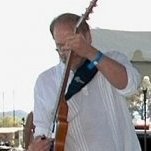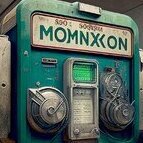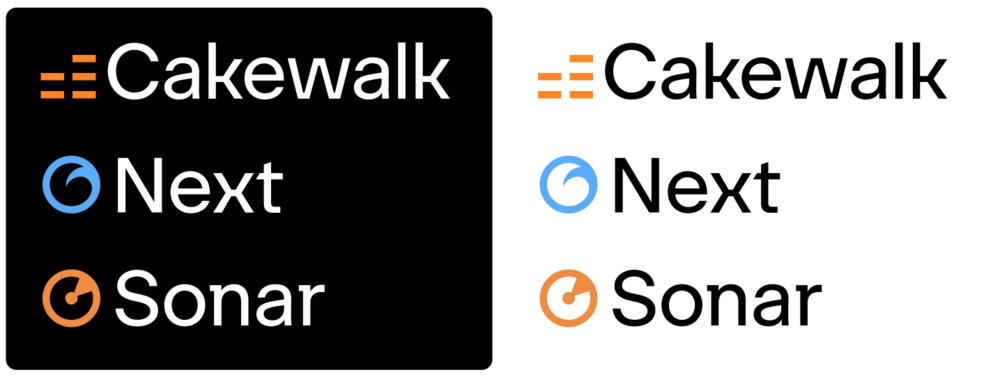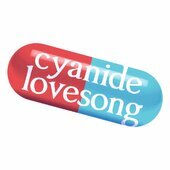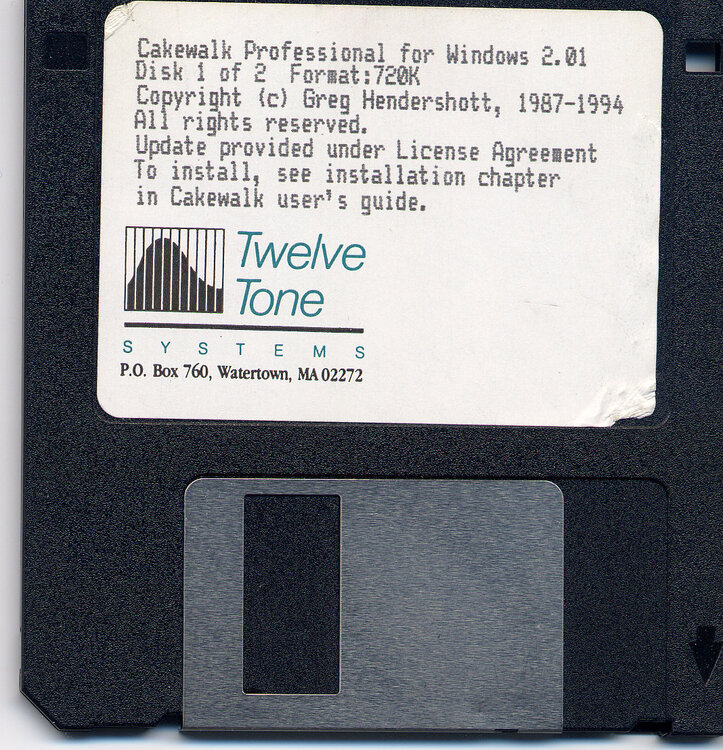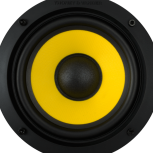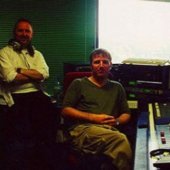Leaderboard
Popular Content
Showing content with the highest reputation on 06/08/2023 in all areas
-
Appreciate the vote of confidence! ? You'll just have to trust we know how to implement scalable graphics. Feel free to stick around and see for yourself. You should also note that the forum website and our codebase have about as much in common as pineapple and a motorcycle.14 points
-
Next is a completely new DAW designed from the ground up by us over the last five years. It was developed to be cross platform and works equally well on Mac and PC with full AU and VST support. The focus so far has been on creation centric features as opposed to the more production centric features that Sonar has. For example, it has very intuitive lyrics entry and song arrangements, a built in sampler and pad controller which is quite powerful, allowing you to set up sampler or instrument pads. While Next might look visually similar to the online web based BandLab Studio that's only because we followed branding guidelines. It has full integration with the BandLab ecosystem with integrated browsing of BandLab loops as well as upload and download to the BandLab library. The product itself is quite deep and includes many of the bells and whistles Cakewalk users have come to expect, like multiprocessor support, background plugin scanning and flexible routing. Routing is very simplified and elegant in Next and can all be done via track folders (unlike Sonar). There are many more exciting features coming in future roadmaps. I'm sure in the upcoming weeks Jesse will post more information about Next. In the interim, interested users are welcome to request beta access if you want hands-on experience with the application.12 points
-
What may hold for one application has no bearing on what holds true for another. We habitually do performance profiling to ensure our changes don't add unexpected overhead. I see some folks are making assumptions about what "vector" means. In our case, vector guarantees that our nominal control sizes, text, background elements and everything else will render crisp and clear at any DPI and scale. I promise the app won't present absurdly scaled images or text and leave you with a wonky look. Rather it'll look "just right," on any display.12 points
-
FWIW, some people prefer subscriptions. This isn't only about people who don't have enough cash upfront. For example, if you're collaborating on mixes with someone who uses Steven Slate's plugins but you don't have them installed on your machine, you can subscribe for a month or two, finish the mixes, and move on. Similarly, if you use Pro Tools Artist but need to do something more advanced for a particular project, you can subscribe to Pro Tools Studio for a month for $30. I'm not saying subscriptions are better, just that they work for some people even though they don't work for others. I think the most successful option for companies by far is offering both - subscriptions that include periodic minor updates or goodies, but these don't become available to owners of the "perpetual" version until they do the next major update. For me, the HUGE problem with subscriptions is if your work is held hostage when you stop paying. That's why I thought the old Sonar rent-to-buy approach of "if your subscription stops, keep using the program...you just don't get any updates" made a lot of sense. It was also quite generous compared to other companies of that era (I'm looking at you, Adobe). But putting all the pricing issues aside, the fact that Cakewalk continues moving forward and progressing is ultimately what matters. And it's much better news than "Thanks for your support over the years, we just sold Cakewalk to Wal-Mart, have a nice day"12 points
-
11 points
-
10 points
-
9 points
-
We haven't released pricing information yet for any of our new products. Your source is a reference to obsolete information for discontinued products from the Gibson-era.9 points
-
No need to get sidetracked in the details of UI implementation. TLDR; we're making a scalable GUI for Sonar that will present clearly at any resolution and scale. The design itself is also getting a facelift. We'll share previews later when there's something substantial to show. In the meantime, we are acutely focused on oh-so-much-to-do!8 points
-
6 points
-
I think it's a good thing that Bandlab is finding a way to monetize Cakewalk/Sonar. To be taken seriously by the industry as a whole, Cakewalk/Sonar needs perceived value. To effectively re-enter the market and compete head-to-head with other top DAW applications, it can't be free. That doesn't mean it needs to be overly expensive... or an inflexible subscription. Seeing long-time Cakewalk staff returning under Bandlab's tenure is heartening. For Cakewalk/Sonar to have a future, there needs to be a vision/plan. It's good to see Bandlab showing the initiative. For those cautious about the future, I totally get that. Keep in mind that most of the major DAW applications have been sold to more broad-based companies. Cubase (Yamaha) Logic (Apple) Samplitude (Magix) Cakewalk (Roland/Gibson/Bandlab) Presonus Studio One is owned by a more broad-based company. IMO, Roland squandered an opportunity with Cakewalk/Sonar. Hardware synths, effects, etc are a natural extension of a DAW. Many brands/products have "gone away" under the umbrella of Gibson. IMO, Gibson needs to focus on being a Heritage guitar maker. Getting into fields where you have no expertise is risky. Putting robotic tuners (which don't work well - inaccurate tuning) on a coveted heritage US made $3000+ guitar is perhaps not the best decision. To ultimately get rid of those Les Pauls, they had to offer Grover Locking Tuners (so those who purchased could return the Les Paul to "normal"). With the right direction/funding/etc, Cakewalk/Sonar could compete with the best-of-the-best. That's what I'd like to see. Back to innovative features/developments. FWIW, I think Cakewalk should focus on what they know best. Virtual Instruments and Effects are a separate realm of knowledge/skill.6 points
-
Could you please link to this "preview?" The new product is called "Cakewalk Sonar," not "SONAR Platinum." This looks like old, archived information.6 points
-
Well, lets see, I've owned every version of Cakewalk from Pro Audio 9 to Sonar Lifetime. I purchased every upgrade in between. For the Last 5 years I have had the use a first rate DAW, which I am very familiar with and does everything I need, for absolutely no cost. Using Sonars previous upgrade pricing as a basis I figure CbB has saved me anywhere from 500 to 700 bucks. I know that is not a ton of cash, but I do appreciate it. Unless they do something really stupid with pricing, I'm in.6 points
-
On behalf of BandLab Technologies and the Cakewalk team, I’m thrilled to announce the following updates and hope you share our excitement for what's to come! The brand Cakewalk by BandLab is now Cakewalk, standing as an independent brand within BandLab Technologies, focused on delivering the next generation of music production software for desktop. Since BandLab’s acquisition of Cakewalk in 2018, we made it our mission to prioritize stability and performance enhancements to make Cakewalk by BandLab the DAW of choice for Windows users. During that time, we’ve witnessed incredible adoption and an ever-growing user community. These forums remind us that one of the software’s best features is its community, and we’re supremely grateful for the positive engagement we see here daily. In order to build our community further, the Cakewalk brand now encompasses two key products. So we’d like to introduce you to the newest member of the family: Cakewalk Next. Next is a creation-focused DAW, built from the ground up to better address the needs of creators and meet the demands of tomorrow. It’s designed to be easy to use yet powerful, suitable for creators regardless of where they are in their musical journey. Learn more about Cakewalk Next and request participation in the public beta. We can’t wait for you to experience it and share your thoughts! Additionally, we’d like to announce a product with a name that is both familiar and new: Cakewalk Sonar. In deference to the audio production legacy that has been a critical tool of choice for so many over the years, this name reflects our continued commitment to serving core production workflows and providing the best all around audio solution on Windows. Cakewalk Sonar will bear a dramatic UI refresh and carry forward as a new product with ongoing improvements and features. Note that Cakewalk Sonar will install alongside Cakewalk by BandLab and any legacy editions of SONAR you may have installed in the past. New products will be available later this year. These changes also bring a new visual identity, which you’ll be seeing across our products, website and everywhere the Cakewalk brand is represented. Check out some examples of our new logos (below) and more at our redesigned website: www.cakewalk.com. So what lies ahead? Our roadmap is filled with some exciting updates, and we’re just getting started. But in short, our focus remains fixed on enhancing your productivity and joy of music creation. Stay tuned for more news to come!5 points
-
5 points
-
Software written for a specific operating system can take advantage of any and every feature that O/S offers. Windows has made great strides with low-(kernel)level audio support, much of it based on solicited input from expert users such as Noel. This is why WASAPI Exclusive Mode is a viable alternative to ASIO. Cakewalk's close association with Microsoft meant, for example, that classic Sonar was always immediately ready for each new version of Windows on Day 1. When you write cross-platform software, you have to take a much more generic approach and are often forced to make compromises in order to maintain a common code base. Optimization is harder. Testing is harder. You are going to have to hire experts in each of the supported operating systems. Development generally takes longer, so you're less able to turn around quick fixes and enhancements like we've become accustomed to.5 points
-
What part of "the people who work on the DAW don't create the website" is so hard to understand?5 points
-
That's a pretty good summation. This is pure speculation, but I can imagine Next far exceeding Sonar in the size of its user base and the two products having a similar relationship as Cubase is to Nuendo. It will be a long while before Next has a comparable breadth and depth of features to Sonar, but over the next couple years it'll cover more and more of the same bases. By then it will have become a viable alternative to Sonar for the majority of music creators who have no interest in becoming audio engineers, at a lower price point and gentler learning curve for new users.5 points
-
A positive response: 1. I last purchased Cakewalk SONAR Producer Edition in 2004 if I remember right. It was V4. I paid $450. I've had a working SONAR/Cakewalk for 19 years now. So that's like $23.68 per year, or $1.97 a month... And the software is a whole lot better now than it was back then! So those of us who paid got a pretty sweet deal even if we have to pay again! ? 2. The 4k UI scaling vector update is a HUGE upgrade in and of itself. Are you guys still working on 1920x1080 monitors? 4k is incredible, but Cakewalk is TINY even on a 32 inch 4k monitor... And if you enable UI scaling, it's very blurry. Don't underestimate the value of the 4k overhaul -- it represents a large investment and it sets Cakewalk up to be competitive in the future. 3. Worries over vector performance -- FLStudio uses a vector based UI and performs very well. And if they do encounter performance problems, they can use a vector-rendered-to-graphics process that is the best of both worlds. It's just more code. 4. Speculation: Cakewalk NEXT will be included with their Bandlab subscription. Right now it's $15/month or $12.46/month when paid yearly. That includes some promotion and also music distribution (Spotify, etc.) ... They might create two levels of subscription: $9.99 for Cakewalk NEXT (no distribution), and $14.99 for NEXT & SONAR + music distribution. That's competitive with Soundcloud -- you get a good DAW + distribution + music host for the same cost as Soundcloud. Not bad. I can't see them going higher than $15/month for SONAR because they can't be more expensive than Studio One... Music distribution would really sweeten the subscription deal. 5. Lastly, if you're someone who loves a software and always buys the new version -- you're practically on a subscription anyway. I spent enough money with both Waves & Plugin Alliance that I could have subscribed for 8 years for each. And when I update to the next version of my Sonible tools? It'll be $240 in updates... And FabFilter? Oh boy. It adds up... Ableton updates are around $200 per version... It costs money to make software, and if SONAR can successful return to a pay model that means it has a future that it may not have otherwise. 6. As existing fans of the software -- our support & word of mouth will be important for the SONAR launch. If you like SONAR I strongly advise backing the company with this move. Day 1 purchases. Spreading the word to others. They need a strong user base to justify continued investment, so lets try to give them a good start. If the launch falls flat we could end up losing this great product. Or we can do what we can to push it forward and we could have another 20+ more years with it! PS. If you're bummed about buying it in the past and having to buy it again -- just calculate how much you've gotten out of it, like I did. If you paid for it 15-20 years ago it might not be such a hard pill to swallow. We got our money's worth. ?5 points
-
Cakewalk Command Center version 1.1.8 is now available! This version addresses an issue where existing Command Center versions are unable to connect to the updated version of the Cakewalk website. This new version can be downloaded from here: https://legacy.cakewalk.com/Command-Center Please Note: Cakewalk Command Center is only required for use with legacy Cakewalk Products and is not required for Cakewalk by BandLab. Thanks, The Bakers5 points
-
Cakewalk as a company closed in 2018. My question to you is can you still use SONAR Platinum today? If the answer is yes, then you have your answer for the future. Most ethical companies handle terminating events like that gracefully and we are no exception. When Cakewalk was shut down, we had escrow plans to unlock licenses for users permanently if it came to that. We never needed to, since BandLab acquired the software and keeps the license servers running even though we make no profit off of it.5 points
-
There will be another final CbB release with bug fixes. We're wrapping up the details on that...5 points
-
Lord Tim wrote "That's an entirely different company who no longer exists, so I guess you need to ask Gibson about that rather than Bandlab." The comment has validity, but the fact is that Bandlab acquired Intellectual Property from Gibson., so it is the terms of that acquisition which determine any liabilities to licensees of that IP, not the fact that Gibson dumped it. It is not uncommon, and in most cases the norm, for an acquirer to, say, take over responsibilities like ongoing service agreements. Your point is valid in that there probably aren't any. Gibson have zero responsibility since the sale agreement would have negated any such obligations. What is interesting is where someone has a perpetual licence, as that right exists whether of not the grantor is still in existence. Ihave the right to use all my Sonar and related products (frozen in time) as long as I wish. It seems to me that if Bandlab have a set of Sonar users it would be dumb just to dump them, or they have thrown away an open goal sales opportunity. What matters now is how they price any conversion, and weigh jam today against future money. IMHO if they had any sense they would not simply drive them away; Ableton and co would just be rubbing their hands in disbelief. PS I have a image on my screen of a floppy disc labelled "Cakewalk Professional for Windows 2.01 / Copyright Gregg Hendershott 1987 - 1994. I bought this in 1992 when I was in Boston MA, and have used it ever since - strewth 31 years ! I'd be slightly sad to be driven elsewhere.4 points
-
With all the talk about the good, the bad and the ugly *everyone* seems to overlook the greatest thing Meng ever did. He carried forward my post count from the old forum. That alone gets my money for the next SONAR version.4 points
-
I see that at the moment there is a lot of focus on the "display pixels" issue, when, in fact, it should be focusing on Usability x Performance x Stability. It is clear that a new version, which will be charged to the user, should not add the numerous BUGs reported in the free version, as well as the hundreds of suggestions for improvements brought by the community over the years. That being the case, since we are going to pay, I will do as the market behaves: I will try to better evaluate the existing DAWs, prices, functionalities, performance, etc., evaluating the best cost/benefit ratio. Since, when the application was free, I'm sure that many users, like me, revealed bugs, non-implementations of improvements suggested by the community, etc. Upon being paid, it enters the market where the cost/benefit ratio is evaluated.4 points
-
At least Bandlab is not collaborating with Behringer for free DAW4 points
-
Those are all cached Google hits from their spidering engine having read the old website. If you click on the actual links (try it) they take you to the current Cakewalk Sonar page, which has none of that pricing listed. Please be careful. There's enough FUD floating up. If you don't understand how Google's caching works, I can explain it. This is another reason why keeping the old Cakewalk, Inc. web server up and running for the past 5 years was....perhaps not the greatest idea.4 points
-
They told us a lot of the cost of "old" Sonar was due to the bundled 3rd party instruments and plugins which is why they were not included with CBB I for one use very little of the bundled plugins , I don't really use the Pro Channel and none of the instruments really cut it for tracks I make for my publishers. I would prefer to be able to pay for a bare bones version with no added "filler" that I will never use and let those that do want it all bundled in pay the extra if they wish.4 points
-
Not knowing the price point of the new products, it is hard to make an opinion if it is worth it or not. We shall see when it is announced. I would certainly pay a reasonable amount of money to keep going with it. Of course reasonable is different for everyone and everyone's need. If you are a professional studio it is quite different than someone in a bedroom studio doing it as a hobby. And that also makes a difference for subscription vs fully paid. As a hobby, there may be many times (breaks, vacation, etc) where it would feel some months subscription payment hasn't been used. I would personally probably be interested in a third product: Cakewalk Basic! If that would be at a lower price point of course. Everything that CbB does, without any plugins or Pro Channel. We all collect plugins, some free, some paid, and have probably enough to do all we need. We also have some preferred plugins we all use that replace many if not most of the plugins in Cakewalk. I know about the saying: you can do everything with stock plugins. But the reality is that, thanks to @cclarry , we still go outside and get some plugins for free, or very cheaply, we can use instead... and probably made to think they can do better than the stock ones! Even if we know it is not often true. It might still be refreshing to see a DAW being just a DAW.3 points
-
I think you’re both right; it simply depends on which browser you’re using. In Chrome the logo looks good enough, but in Firefox it looks quite pixelated. <nerdy-details>It's because BandLab in the css selector #logo used the declaration “image-rendering: crisp-edges”. Chrome says that's an invalid property value and simply ignores it, while Firefox accepts it but turns the logo into an 8-bit experience. </nerdy-details> Oh, well. There are bigger problems in this world right now.3 points
-
EDIT: Dead horse, already dead, almost unrecognizable. Sorry.3 points
-
The team is working on the "Software" not the website ?3 points
-
3 points
-
https://neovst.com/piano-one/ Sound Magic has announced the release of a virtual vintage upright piano. Compared with the original Piano One which brings the sounds of a Yamaha C5 grand piano, Piano One Special Edition offers a different style of piano sound. By utilizing the Sound Magic Neo Piano Hybrid Modeling Engine, Piano One offers both the Realistic Sound of Sampling and the Playability of Modeling. Hybrid Modeling provides an instantaneous feeling – no delay – and a truer and richer sound than can be created with either sampling or modeling alone. Available in VST/AU plugin formats for Windows and Mac, Piano One Special Edition is free to download until July 8th, 2023.3 points
-
Don't sleep on Bassynth, I use it quit regularly.3 points
-
3 points
-
The problem is that varies greatly from individual to individual. I make music income every quarter , just yesterday was notified I earned almost $1k from one of my tracks on a Youtube video which will likely cover whatever the are going to charge for the next 2 - 5yrs .....so whatever they are asking will be well worth it for me perosnally as I've used it for 25yrs, I'm fast and has pretty much everything I need, There are other folks just wanna dabble and make a few songs a year, they are not earning anything from what is essentially a professional grade tool. Those folks likely wouldn't be willing to pay as much as I would as there is no ROI. Maybe this is why they are making Cakewalk Next s well so you have a consumer level package and a Pro level package and pay appropriately based on your needs.3 points
-
http://witchpig.co.uk/plugins.html Guillotine chops up segments of audio in sync with the BPM of the track. Up to 32 divisions can be made from one section, which can then be modulated, bitcrushed, distorted, or simply silenced. In the Sever FX setting, the top right knob can be used in Relent mode as an expander, rather than as the default noise gate - this means that the chosen segments will be made quieter rather than totally silenced. In the other FX settings, the top right knob will operate in Inflict mode, increasing the severity of the chosen treatment. Available for WIN AND MAC VST AND AU3 points
-
3 points
-
3 points
-
You're lucky, we have had 2 dead Imacs and a dead MBP...belong to my wife & kids not me. I took them apart and they all overheated and fried the Logic board..which Apple won't sell you. Just poor thermal design to make them look sleek. Give me an ATX case any day. I did just buy my wife an M2 Mac Mini to replace the 2014 model she is still running, to be fair that's done well but I was disgusted at the price of the extra storage...£200 to go from a virtually laughable 256gb to a still small 512gb SSD that costs about £40. The fact they are non-user upgradeable is insane to me. But..she wont' use a PC so what can I do. Thankfully the kids have grown up gamers and all wanted PC's which we built together.3 points
-
I won't answer as I know nothing about the sales model the new Cakewalk will use so IMHO this survey is a waste of time!3 points
-
Personally I'm happy to see Cakewalk get "monetized" again with Next and Sonar. For one thing it creates a revenue stream to sell to a future owner along with the intellectual property should the current owner ever decide to get out of the game for any reason . And while the "stigma" of using a free DAW instead of a "professional" one never bothered me, it will help to restore Cakewalk's reputation as a developer to be reckoned with by all the major players, including plugin and control surface vendors, which will be good for all of us. The king is dead. Long live the king.!3 points
-
Cough cough... Reaper.. I still own Sonar Producer 8.5.3. I have BandLab Cakewalk, but haven't used it in a long while. I've been mainly using Reaper since you can program scripts for it and the customization is off the charts. Reaper is also cheap ($60) for those of us that is doing this just for fun. Sometimes I'll use Reaper as a rewire plugin into Sonar Producer so I can have access to VST3 in Sonar.2 points
-
Oh no! We’ll have to live with ‘is it M2 compatible’2 points
-
If the crash is in the plugin DLL, then 99% of the time it's the plugin's fault. If it was the DAW (and sometimes it can be), then it would happen on far more plugins than just that one (and by far more I mean most). All VST plugins must conform to the VST2/3 spec, which is a list of functions they must implement, and some they may decide not to fully implement, but must refuse gracefully. For the most part (i.e. unless the spec says otherwise), these functions can be called at any time and in any order. In reality, a lot of plugin developers assume you will never call function "B" before you've called function "A". Their reasons may be that function B might not return reasonable results until you've called function A. However, that doesn't mean you shouldn't be able to call function B before function A, and it certainly shouldn't crash if you do. It should just fail gracefully, or ignore it silently. It maybe that the other 5 DAW's only ever call function B after they call function A, so the plugin developer might assume that's the norm and never bother dealing with any other circumstance... but unless they've tested with every DAW / audio editor / NLE, that's a big assumption. There are many different areas plugins can be called from, such as: - loading the plugin presets, either internally in the plugin, or from an external file - binding automation parameters - setting the initial automation value The order in which parameters can be read/written to can be completely arbitrary - i.e. it could be in parameter order, automation lane order etc... and the order of other calls such as setting the tempo, or other system wide settings could happen at any time. The plugin shouldn't make any assumptions about ordering. When they do - that's when crashes happen. As for the DAW vs Plugin blame game... put it his way... I have over 2000 plugins, and maybe 3 or 4 crash on me. There are probably 10,000+ plugins out in the wild. Should a DAW manufacturer test 10,000+ plugins to make sure every one of them works? And test them twice for both VST2 + VST3? And then you hack the code to make one plugin work, and that causes another bunch of plugins to crash... it's like a game of wack-a-mole. On the other hand, a plugin developer has to support maybe 20-30 DAW's. Should the plugin manufacturer test their plugin on every one of them? The plugin dev doing the testing obviously is the more reasonable scenario, but with 20+ DAWs? How much will that cost them to do that, and therefore you? The plugin dev will likely pick 5 DAWs at max - realistically only 2 or 3... and if that doesn't happen to be the DAW you're using, there's a possibility there will be issues.2 points
-
Coming to a thread near you soon.......PbB. (Popcorn by Bandlab)2 points
-
Not only that, but in my limited experience, Cakewalk's tech support is really good! I had a ticket open with them recently, and a ticket open with Native Instruments for a paid product. Cakewalk's tech support was prompt, courteous, and helpful. Native Instrument's has been extremely slow, inexpert, and ultimately incorrect. It's astonishing to me that Cakewalk's support team for a free product is leagues better than NI's for a paid one.2 points
-
This thread and the one upstairs is like "Nextdoor" on steroids. People bitching about hypotheticals and other people bitching about the first bitchers. ?2 points
-
I'm not battling anyone, nor am I blindly defending my preferred DAW. Just basic troubleshooting while trying to avoid a classic causation vs. correlation logical fallacy. Let me explain my reasoning, and feel free to correct any logical errors I may make in the process. Let's start at the beginning, by looking at what a c0000005 error is, and how it comes to be raised. This particular error code represents an access violation, which means the software has attempted to write to an address location that it does not have permission to write to. Usually, this is the result of an uninitialized pointer, a variable that contains a memory address but that hasn't been given a value. Because all variables initially default to zero, the pointer is pointing at address 0. Although 0 is a valid memory address, it's in a part of memory that's reserved for the operating system kernel and cannot be written to by user applications. The O/S protects itself by refusing the operation and raising an error so that the offending application can deal with it. How does a pointer get initialized? That's up to the programmer who wrote the code. That's why it's safe to assume that a c0000005 error is a bug in the code that raised it, and ultimately human error. I apologize if you knew all that already, but it's important to understand how this error happens and why. The key concept is in your statement that "...This is not the only plugin that has generated a c0000005...". The salient point is that it was the plugin that attempted to write to protected memory, not the DAW. The error was raised by the plugin, not the DAW. Granted, the plugin may have been referencing an invalid pointer that the DAW supplied it with, that's not impossible. However, any pointers passed to the plugin (e.g. input and output buffers) would be the same pointers the host passes to all plugins. If they were invalid, the DAW would crash every time you attempted to use any VST plugin. From a software developer's perspective, it is always the module's responsibility to validate arguments, and to never assume that the caller guarantees they are valid. Usually, that means the plugin will refuse the invalid pointer and notify the host that the call has failed, in which case the host would be tasked with processing the error. When this is the case, it won't be the plugin that was identified as the offending module in the dump, but rather the DAW. But if the stack dump shows a plugin's DLL as the failing module, then that's where the problem originated.2 points





